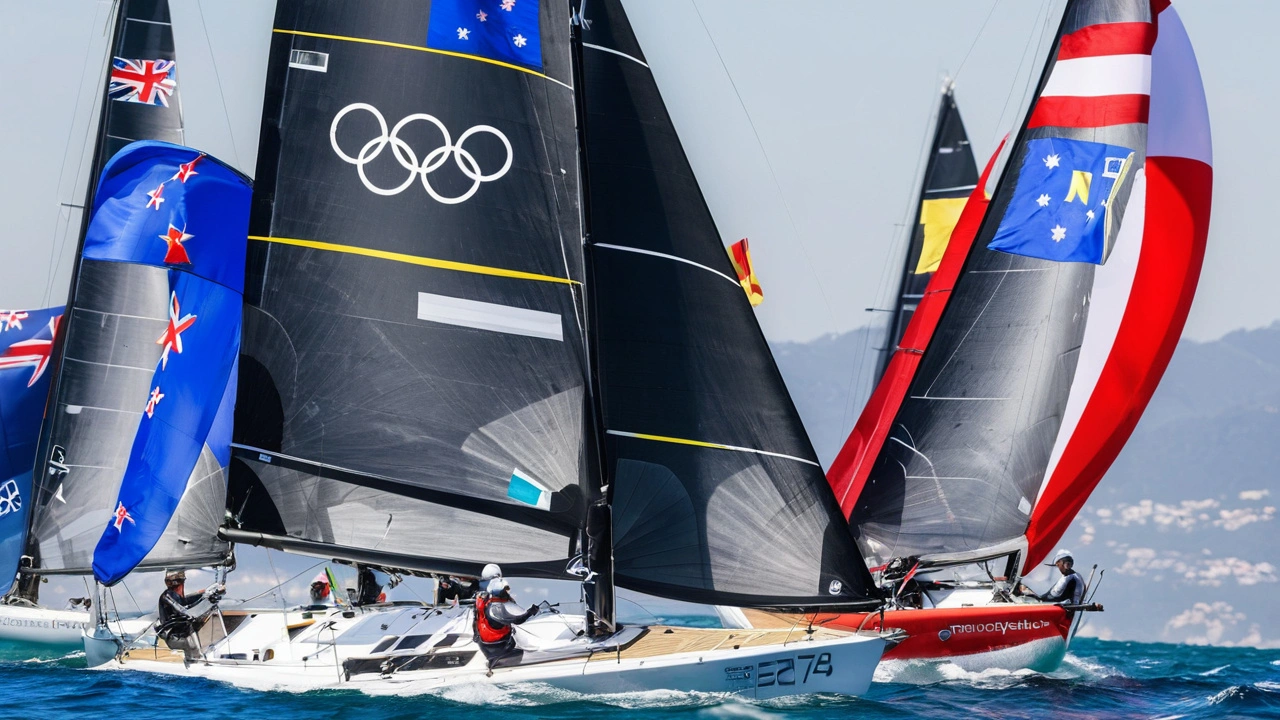Olympic Sailing Medals: What They Mean and Who’s Winning Them
If you’ve ever wondered why a tiny boat with a few sailors can capture so much excitement at the Olympics, you’re not alone. Sailing has been part of the Games since 1900, and every four years the world’s best sailors battle for gold, silver and bronze in different classes. The medals aren’t just shiny pieces of metal – they represent years of training, weather tricks, and split‑second decisions on the water.
How Olympic Sailing Works
The format is simple enough to follow but tricky to master. Each class (like Laser, 49er or Nacra 17) runs a series of races called “fleet races.” Sailors earn points based on finishing position – first place gets one point, second gets two, and so on. After all the races, the lowest total wins. There’s also a final “medal race” with double points that can shake up the leaderboard right before the podium.
Wind conditions play a huge role. On calm days, tactics and boat handling matter more; in strong winds, raw power and endurance take over. That’s why you’ll see different nations excel depending on where the Games are held – a country with big‑wave experience often does better in windy venues.
Countries that Dominate Olympic Sailing
Historically, a handful of countries have racked up most of the medals. Great Britain leads the pack thanks to strong youth programs and world‑class coaches. The United States, Australia and New Zealand are also regulars on the podium, especially in high‑performance skiff classes.
In recent Games, China and Brazil have made big strides, winning their first medals in new mixed‑gender events like the Nacra 17. These shifts show how investment in sailing infrastructure – from better training centers to more international regattas – can turn a country into a medal contender within a few Olympic cycles.
Individual athletes become household names too. Sailors such as Ben Ainslie (GBR), who collected four golds, and Rio’s own Robert Scheidt (BRA) with multiple medals, prove that consistency across several Olympics is possible when you blend talent with the right support system.
Where to Watch the Next Olympic Sailing Action
Most Olympic broadcasters stream the sailing events live, but you can also catch free coverage on official Olympic YouTube channels or the World Sailing website. Look for “fleet race” schedules – they’re usually posted a week ahead, and the medal race is highlighted as the must‑watch moment.
If you want to follow the points in real time, download the official Olympics app. It shows live rankings after each race and offers short video recaps that explain why a certain sailor moved up or down. Social media accounts of national sailing federations also post quick updates, especially when weather changes force a race delay.
Whether you’re a casual fan or an aspiring sailor, keeping an eye on the medal tally gives you insight into which nations are pulling ahead and what boat classes might be the next big thing. The next Olympics will bring new technology, faster boats and fresh faces – so stay tuned, track the scores, and enjoy the ride.

